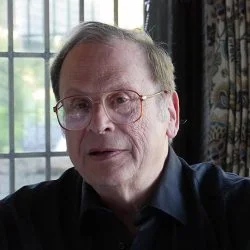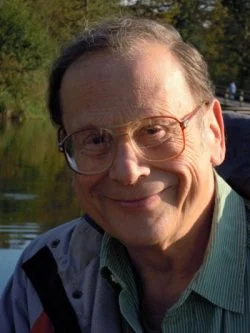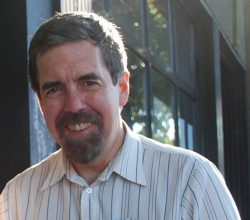#716 Your daughter should know
Fatherless: A Memoir
by Keith Maillard
Morgantown, VA: West Virginia University Press, 2019; distributed in Canada by UBC Press
$27.95 Cdn / 9781949199130
Reviewed by Sheldon Goldfarb
*
 The first half of this book is magical. Not magical like a Disney movie, full of charm and delight. Much darker than that, a story of Jungian archetypes, shadows, the ouroboros snake swallowing its own tail, a hero’s journey.
The first half of this book is magical. Not magical like a Disney movie, full of charm and delight. Much darker than that, a story of Jungian archetypes, shadows, the ouroboros snake swallowing its own tail, a hero’s journey.
The journey begins with a call, as all good hero’s journeys should, in this case a telephone call to Keith Maillard at his office in the Creative Writing Department at the University of British Columbia, telling him that his father, the father he had never known, was dead. This leaves him a bit stunned and also angry: the father he had never been able to find after his divorce from his mother when young Keith was a toddler has been able to find him, after death.
We learn that Keith has twice tried to find his father in the five decades since the separation: once he sent him a letter saying something like, You probably don’t want to hear from me, but if you do, here’s my address. Not surprisingly, his father did not respond. Years later in Seattle, having learned that his father worked for a company there, he tried phoning, but the Seattle office said his father (Gene Maillard) had been transferred to the San Francisco office. He tried the San Francisco office, but was told there was no Gene Maillard there.

And then he gave up. Not exactly persistent, and if we miss that point the author helpfully provides us with a quotation from Calvin Coolidge saying the most important virtue in life is persistence. Lots of men have talent, even genius, said silent Cal, but without persistence you get nowhere.
Now, with his father dead, it might seem too late, but his wife urges him on, and he gets in touch with his father’s lawyer and executor. The executor is especially colourful, a wise old man who drives much too fast through the Escondido desert in California, where Keith visits to see where his father was in his last days. And where he was, was a bizarre landscape and a Masonic lodge, which had honoured him for his philanthropy, though Keith had grown up hearing that his father was cheap. Just one of several inconsistencies in the story.
And story seems to be the aim here, to discover his father’s story. That will be the hero’s quest.
Like many heroes, though, he is reluctant, overwhelmed, not sure he is up to the task. He has to be urged on by his wife, who as a documentary editor is very much into capturing all the documents of Gene Maillard’s life.
Of course, the person with the most information about Gene Maillard would likely be his ex-wife, Keith’s mother, but she’s always been distant with him, especially about what happened in her short-lived marriage. There’s a story about Hot Springs, Arkansas, and how while pushing Keith in a stroller, she asked Gene for a nickel for a Coke. Wait till you get home, Gene told her, and then you can drink water for free.

At least that’s her story. Gene’s story, via other sources, was more about how his mother-in-law was a problem, looking very threatening as she sharpened a knife when he came for a rare visit after the divorce when Keith was three. And that was the last time Keith saw him.
The first half of the book follows Keith on his journey into the life of his father, down to Escondido in person and to various other locations in the documents, from Alsace-Lorraine to Montreal to Pennsylvania, Ohio, and West Virginia, which is where young Keith grew up, but which turns out to be where his father’s family lived too. This discovery is what prompts the comment about the snake swallowing its own tail, a reference to the ouroboros of ancient myth, and the peak of the mythic sensibility in this memoir.
And then it all goes downhill. After telling the tale of the quest for 130 pages, suddenly the author calls a halt and gives us another type of book altogether. He tells us that his wife has gathered all sorts of documents, and he spends the last half of the book summarizing them and trying to construct a coherent narrative of his father’s life.
All that’s missing is the truth of the mythic encounter in Hot Springs, Arkansas, where his parents’ marriage broke up. It shouldn’t be missing; it could be filled in by a talk with his mother, but that’s where the hero falls down again. He’s been doing so much research that when his mother starts to tell him the story, he can’t restrain himself from correcting her.
You’ve been doing research, his mother says? Yes, says Keith, and his mother falls silent, and the moment has passed. The hero has failed. And whereas the author seems to understand the first failure of the hero, the lack of persistence while his father was still alive, this time he doesn’t seem to see that perhaps the real quest was not so much to find the details of his father’s life, but to connect with the only parent he has left. Oh, well.

He tries to remedy his previous lack of persistence by interrogating his mother, like “a cop interrogating a witness,” but it’s no good. All he gets is facts and pseudo-facts, not the sacred mysteries. He turns into a meta-novelist, telling us how he could construct scenes between Gene and his wife or Gene and his brother, but he doesn’t realize that the key scenes are between Keith and Keith’s mother.
The publishers, or whoever chose the cover illustration, don’t realize this either. The cover shows us Keith’s father as a young boy. Surely, it would be more relevant to show us Keith at that age: he was the fatherless one. Or perhaps show us his parents together, but those pictures are all gone. His father is gone, and all he can find of him are documents.
At the end of the book he reports what his daughter says about all this. He is finally putting his documents away, and she says, Are you done with him now? Yes, he says, and she says she wouldn’t want to know her father, Keith, through a bunch of old documents; she’s glad she can know him in person, in the here and now.
There’s the lesson of this memoir: documents are no substitute for the real thing. And if you’ve lost your father and didn’t try hard enough to find him, perhaps you can at least connect with your mother. But now she is gone too, from dementia. But at least there’s the daughter, who speaks the wisest words in the book.
So if you want to read the story of a fascinating though doomed quest, the first 130 pages of this book are for you, complete with shrines and surrogates and rivals for a father’s attention: the little girl who was the star pupil in his father’s tap dance classes. Yes, Gene Maillard was a tap dancer and general entertainer and also a draftsman in an atomic energy plant and the descendant of glassblowers.
The whole first half of the memoir shimmers with mythic energy, as the protagonist wrestles with the memory, or non-memory, of his father.
And then, in the second half, the author produces a document, giving us the history of glassblowing and the songs of the 1920s, along with letters from family members. The result of the quest perhaps, but quests are more interesting than results. If only the second half of this memoir could have matched the first.
*

Sheldon Goldfarb is the author of The Hundred-Year Trek: A History of Student Life at UBC (Victoria: Heritage House, 2017). He has been the archivist for the UBC student society (the AMS) for more than twenty years and has also written a murder mystery and two academic books on the Victorian author William Makepeace Thackeray. His murder mystery, Remember, Remember (Bristol: UKA Press) was nominated for an Arthur Ellis crime writing award in 2005. His latest book is Sherlockian Musings: Thoughts on the Sherlock Holmes Stories (London: MX Publishing, 2019). Originally from Montreal, he has a history degree from McGill University, a master’s degree in English from the University of Manitoba, and two degrees from the University of British Columbia: a PhD in English and a master’s degree in archival studies.
*
The Ormsby Review. More Books. More Reviews. More Often.
Publisher and Editor: Richard Mackie
The Ormsby Review is a journal service for serious coverage of B.C. books and authors, hosted by Simon Fraser University. The Advisory Board consists of Jean Barman, Robin Fisher, Cole Harris, Wade Davis, Hugh Johnston, Patricia Roy, David Stouck, and Graeme Wynn. Scholarly Patron: SFU Graduate Liberal Studies. Honorary Patron: Yosef Wosk. Provincial Government Patron since September 2018: Creative BC
“Only connect.” – E.M. Forster